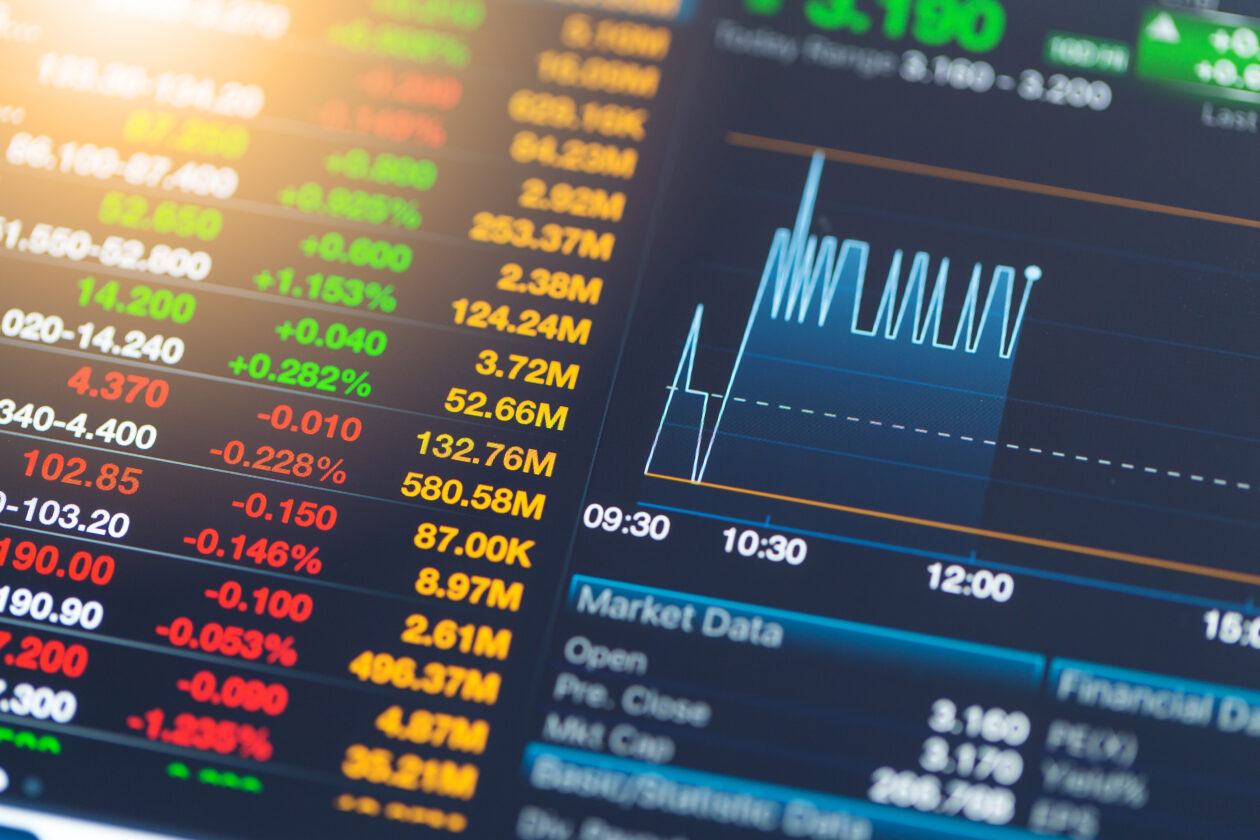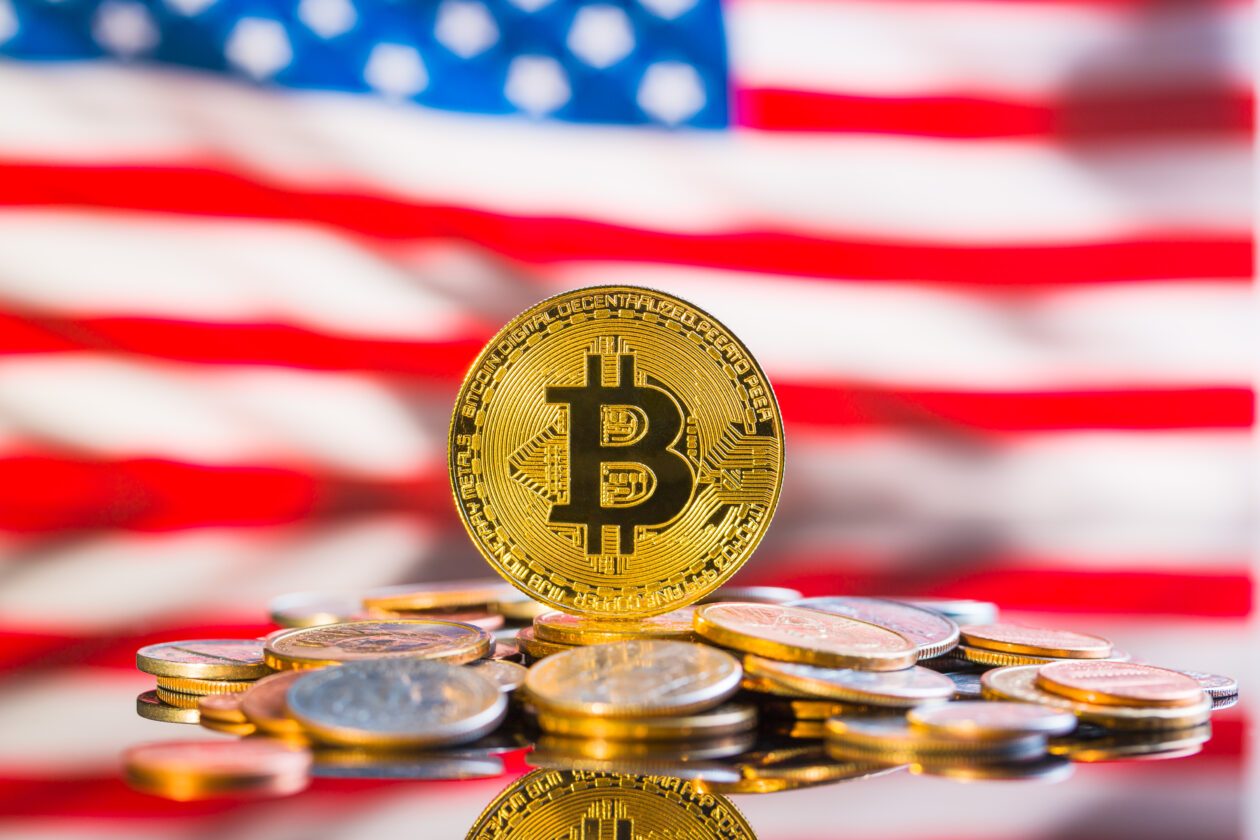Both Bitcoin and Ether fell in Wednesday afternoon trade in Asia, with Ripple’s XRP leading losses among the other top 10 non-stablecoin cryptocurrencies. Other tokens in the top 10 traded mixed, with crypto exchange Binance’s BNB token leading the gains amid its ongoing lawsuit with the U.S. Securities and Exchange Commission (SEC). Investors are looking forward to the U.S. central bank’s decision on interest rates to be announced later on Wednesday, with the Federal Reserve expected to keep rates unchanged at 5%-5.25%.
See related article: How American courts have become central to crypto law
XRP leads losses, BNB gains
Bitcoin fell 0.69% to US$25,894 in the 24 hours to 4 p.m. in Hong Kong, according to CoinMarketCap data. The world’s biggest cryptocurrency by market capitalization has lost 3.40% in the past week following lawsuits brought by U.S. regulators against two of the world’s biggest crypto exchanges, Binance and Coinbase.
Ether, the world’s second biggest cryptocurrency, fell 0.42% to US$1,741 over the past 24 hours, bringing its weekly losses to 7.18%.
“Last week and the weekend were tumultuous days for cryptocurrency markets, marked by significant declines in valuations across the board,” Robert Quartly-Janeiro, Chief Strategy Officer of crypto exchange Bitrue, said in an emailed statement.
“The challenges faced by Binance and Coinbase in the United States hold significant weight. Binance, commanding over 60% of the global market, and Coinbase, with 70% market share in the USA, are major participants so what happens to them naturally affects global sentiment,” Quartly-Janeiro added.
BNB, the native token of the world’s largest crypto exchange Binance, gained 4.93% to US$246 over the past 24 hours. That reduced its weekly losses to 10.95%.
The gains came after a U.S. federal judge on Tuesday denied the SEC’s request to freeze the assets of Binance.US. The decision allows Binance.US to continue operating while it battles a lawsuit filed against it by the regulator last week. The SEC alleges that Binance.US failed to register as a securities exchange while offering and selling unregistered securities.
The SEC also sued Coinbase, the largest crypto exchange in the U.S., on similar charges.
“Outflows from Coinbase and Binance reached US$4 billion during the week. Crypto traders, spooked by SEC lawsuits, are withdrawing assets from exchanges en masse,” Alex Kuptsikevich, senior market analyst at online brokerage firm FxPro, said in emailed comments.
In a parallel development involving the SEC and crypto, Ripple’s XRP token was the biggest loser, dropping 5.36% to US$0.5013 in 24 hours and 4.93% on the week. The drop came after the so-called “Hinman documents” were released, named after former SEC corporate finance director William Hinman.
Ripple Labs Inc. was sued by the SEC in December 2020, for allegedly selling US$1.3 billion in unregistered securities. The company asked to unseal documents in which Hinman said Bitcoin and Ether should not be categorized as financial securities. The comments are a major point of contention in the legal battle between the SEC and Ripple as Ripple seeks to bolster its fair notice defense.
Ripple’s chief legal officer Stuart Alderoty tweeted on Tuesday, “Hinman’s speech should never again be invoked in any serious discussion about whether a token is or is not a security. Unelected bureaucrats must faithfully apply the law within the constraints of their jurisdiction.”
14/ And finally, Hinman’s speech should never again be invoked in any serious discussion about whether a token is or is not a security. Unelected bureaucrats must faithfully apply the law within the constraints of their jurisdiction. They can’t – as Hinman tried – create new law.
— Stuart Alderoty (@s_alderoty) June 13, 2023
Markus Thielen, Head of Research & Strategy at digital asset service platform Matrixport, feels that the crypto crackdown by the U.S. SEC opens up new opportunities for other parts of the world including Asia.
“I think the key difference is that in the U.S., derivatives are not really offered; only the spot market. And the derivatives market is 11 times bigger than the spot market,” Thielen told Bloomberg on June 13.
“So a lot of the trading already happens outside of the U.S. and I think this is why Binance got into trouble because a lot of U.S. institutions appear to be trading on the platform according to the allegations. I think to really offset the pressure from the U.S., I think Hong Kong needs to do more and I think Hong Kong can actually step into this void now,” Thielen added.
Even in the decentralized finance (DeFi) sector, which gained momentum after multiple centralized finance (CeFi) collapses throughout 2022, institutional investors are looking at Asia and the Middle East.
“Growth is returning to DeFi, albeit slower than last year, but interest is coming back as institutions and investors evaluate the landscape,” Robert Alcorn, chief executive and Co-Founder of DeFi credit marketplace Clearpool, said in a statement.
“Indeed, the main obstacle for traditional institutions remains regulatory clarity and compliance. Significant progress has been made in this regard across Asia and the Middle East, which is likely to encourage investor participation, and we expect these regions to become the main crypto lending hubs as confidence builds,” Alcorn added.
In Asia, Hong Kong’s new rules for the cryptocurrency industry came into effect from June 1, as part of the city’s ambition to become a global hub for digital assets.
This week, Hong Kong-based Bank of China International Holdings (BOCI) issued US$28 million worth of fully digital structured notes in the form of tokens on Ethereum blockchain. That makes it the first Chinese financial institution to issue a tokenized security in Hong Kong, according to a statement from investment banking firm UBS.
The product was developed by UBS and is available to its clients in the Asia Pacific region.
“Working together with UBS, we are driving the simplification of digital asset markets and products for customers in Asia Pacific through the development of blockchain-based digital structured products, designed specifically for customers in Asia Pacific,” Ying Wang, deputy chief executive officer at BOCI, said in the statement.
“We are encouraged by the evolution of Hong Kong’s digital economy and are committed to promoting the digital transformation and innovative development of Hong Kong’s financial industry,” Wang added.
The global crypto market capitalization fell 0.46% to US$1.06 trillion, while total market volume gained 8.59% to US$31.3 billion in the last 24 hours.
NFT markets slump, Snoop Dogg releases collectibles
In the non-fungible token (NFT) market, the Forkast 500 NFT index dropped 0.63% to 2,942.34 in the 24 hours to 6.45 p.m. in Hong Kong, registering losses of 10.43% over the last seven days.
The Forkast ETH NFT Composite dropped 1.24% to 1,037.33, down 6.37% on the week.
“The NFT market is finally reacting to the U.S. SEC’s stepped-up attacks against the cryptocurrency industry,” according to Yehudah Petscher, NFT Strategist at Forkast Labs, the parent company of Forkast.News.
“Either way, it’s pretty clear we’re entering another new phase of the NFT market, and traders are being cautious. How low we can go, nobody knows,” Petscher added.
Total NFT sales volume on the Ethereum blockchain dropped 3.07% to US$13.09 million in 24 hours. In stark contrast, sales volume gained 95.59% to US$5.41 million on the Bitcoin network, according to CryptoSlam data.
Sales of uncategorized Ordinals — Bitcoin NFTs that are not part of an established collection – recorded the highest sales volume in 24 hours, climbing 87.32% to US$3.10 million.
Among other developments in the sector, entertainment icon Snoop Dogg has launched The Snoop Dogg Passport Series, a digital tour collectible. The passport series includes behind-the-scenes video and images uploaded by the rapper, a public relations spokesperson for the project said in an emailed statement.
The collection will also include visual works from NFT artists like Coldie, Terrell Jones, and Alien Queen.
Asian equities, U.S. futures mixed; European bourses rise

Asian equities traded mixed on Wednesday as China is expected to cut its headline policy interest rate on Thursday, due to slower-than-expected economic recovery. Senior Chinese officials are reportedly seeking inputs from economists and business leaders on how to revive the world’s second largest economy after three years of Covid-19 related disruptions.
The Shanghai Composite dropped 0.14% while the Shenzhen Component Index gained 0.26%. Hong Kong’s Hang Seng Index lost 0.58% but Japan’s Nikkei 225 strengthened 1.47%.
U.S. stock futures were mixed as of 8 p.m. in Hong Kong. The Dow Jones Industrial Average futures dropped 0.26%, and S&P 500 futures gained 0.11%. Nasdaq 100 Futures also rose 0.14%.
The U.S. central bank is expected to keep interest rates unchanged at its meeting on June 13 and 14. Current interest rates in the U.S. are between 5% and 5.25%, the highest level since 2006, after 10 consecutive raises that started in March last year.
“The market has all but moved on to what happens in the [Fed’s] following meeting in July,” DBS Bank said in a research note on June 12.
“Given the economy’s slow but steady state of affairs, the chance of a hike in that meeting is non-trivial, in our view. In our forecasting horizon, we see both headline and core inflation in the 3-4% range this year and next, which may justify a prolonged pause than a number of additional hikes by the Fed,” DBS said.
Tuesday’s U.S. Consumer Price Index (CPI) report, a key inflation indicator, showed that inflation in the world’s biggest economy grew at a 4% annual rate in May, compared to 4.9% in April. The CPI was the lowest yearly inflation rate since March 2021, but is still higher than Fed’s target of 2%.
European bourses strengthened on Wednesday, as investors look forward to the European Central Bank’s decision on interest rates on Thursday. The central bank is expected to announce another 25 basis point rate hike to 3.5%.
The benchmark STOXX 600 rose 0.57% and Germany’s DAX 40 gained 0.52% during afternoon trading hours in Europe.






